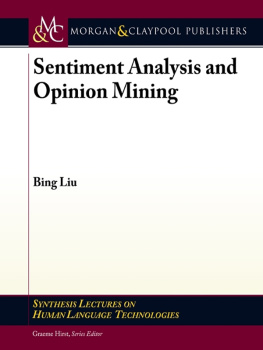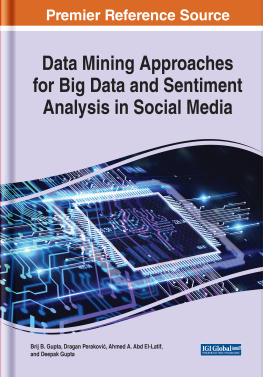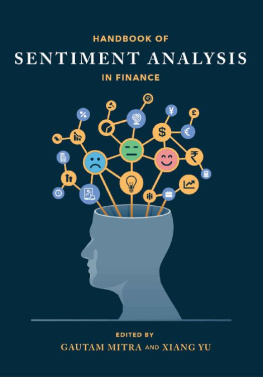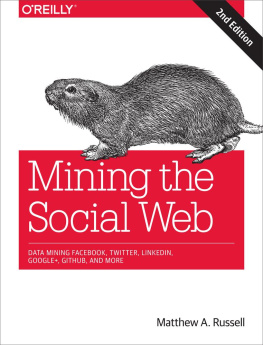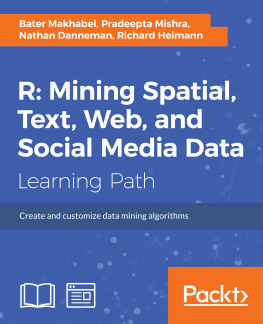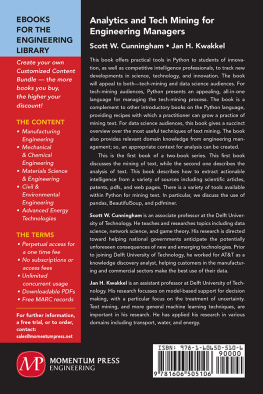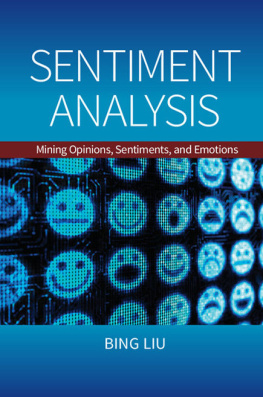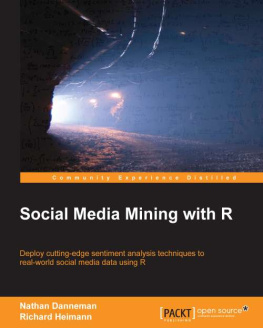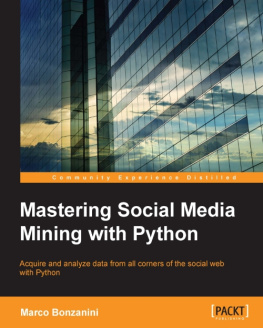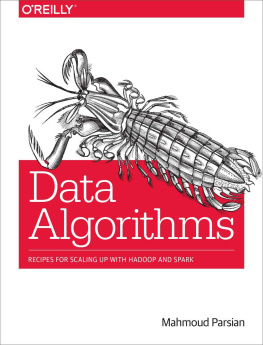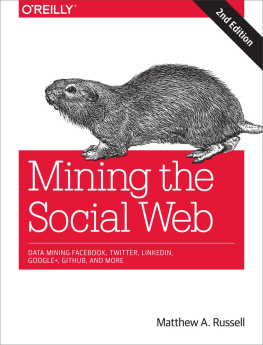Bing Liu - Sentiment Analysis and Opinion Mining
Here you can read online Bing Liu - Sentiment Analysis and Opinion Mining full text of the book (entire story) in english for free. Download pdf and epub, get meaning, cover and reviews about this ebook. year: 2012, publisher: Morgan & Claypool Publishers, genre: Home and family. Description of the work, (preface) as well as reviews are available. Best literature library LitArk.com created for fans of good reading and offers a wide selection of genres:
Romance novel
Science fiction
Adventure
Detective
Science
History
Home and family
Prose
Art
Politics
Computer
Non-fiction
Religion
Business
Children
Humor
Choose a favorite category and find really read worthwhile books. Enjoy immersion in the world of imagination, feel the emotions of the characters or learn something new for yourself, make an fascinating discovery.
- Book:Sentiment Analysis and Opinion Mining
- Author:
- Publisher:Morgan & Claypool Publishers
- Genre:
- Year:2012
- Rating:3 / 5
- Favourites:Add to favourites
- Your mark:
Sentiment Analysis and Opinion Mining: summary, description and annotation
We offer to read an annotation, description, summary or preface (depends on what the author of the book "Sentiment Analysis and Opinion Mining" wrote himself). If you haven't found the necessary information about the book — write in the comments, we will try to find it.
In fact, this research has spread outside of computer science to the management sciences and social sciences due to its importance to business and society as a whole. The growing importance of sentiment analysis coincides with the growth of social media such as reviews, forum discussions, blogs, micro-blogs, Twitter, and social networks.
For the first time in human history, we now have a huge volume of opinionated data recorded in digital form for analysis.
Sentiment analysis systems are being applied in almost every business and social domain because opinions are central to almost all human activities and are key influencers of our behaviors. Our beliefs and perceptions of reality, and the choices we make, are largely conditioned on how others see and evaluate the world. For this reason, when we need to make a decision we often seek out the opinions of others. This is true not only for individuals but also for organizations.
This book is a comprehensive introductory and survey text. It covers all important topics and the latest developments in the field with over 400 references. It is suitable for students, researchers and practitioners who are interested in social media analysis in general and sentiment analysis in particular. Lecturers can readily use it in class for courses on natural language processing, social media analysis, text mining, and data mining. Lecture slides are also available online.
Table of Contents: Preface / Sentiment Analysis: A Fascinating Problem / The Problem of Sentiment Analysis / Document Sentiment Classification / Sentence Subjectivity and Sentiment Classification / Aspect-Based Sentiment Analysis / Sentiment Lexicon Generation / Opinion Summarization / Analysis of Comparative Opinions / Opinion Search and Retrieval / Opinion Spam Detection / Quality of Reviews / Concluding Remarks / Bibliography / Author Biography
Bing Liu: author's other books
Who wrote Sentiment Analysis and Opinion Mining? Find out the surname, the name of the author of the book and a list of all author's works by series.

